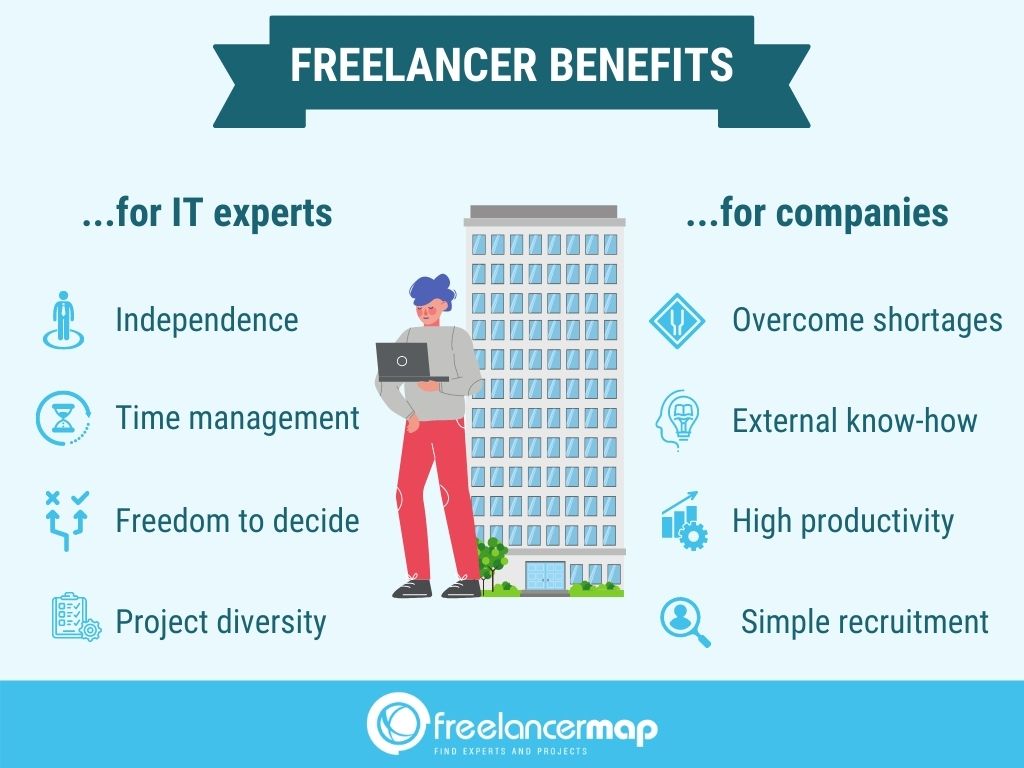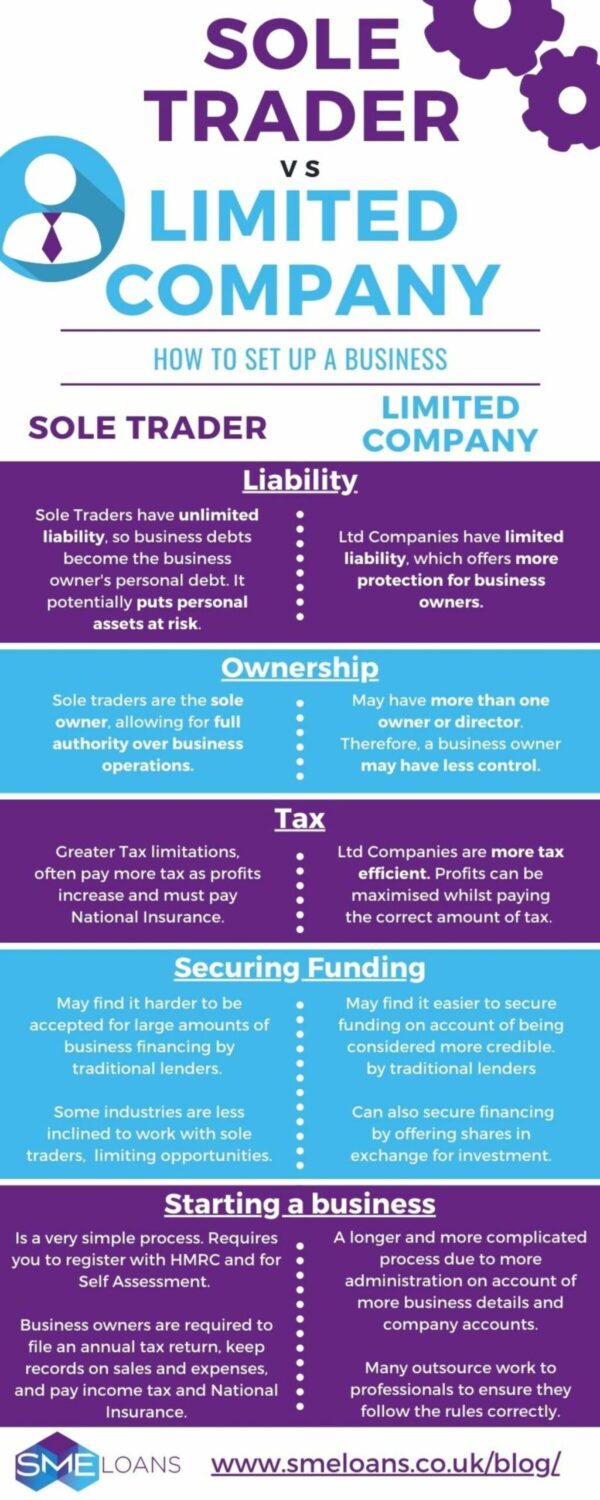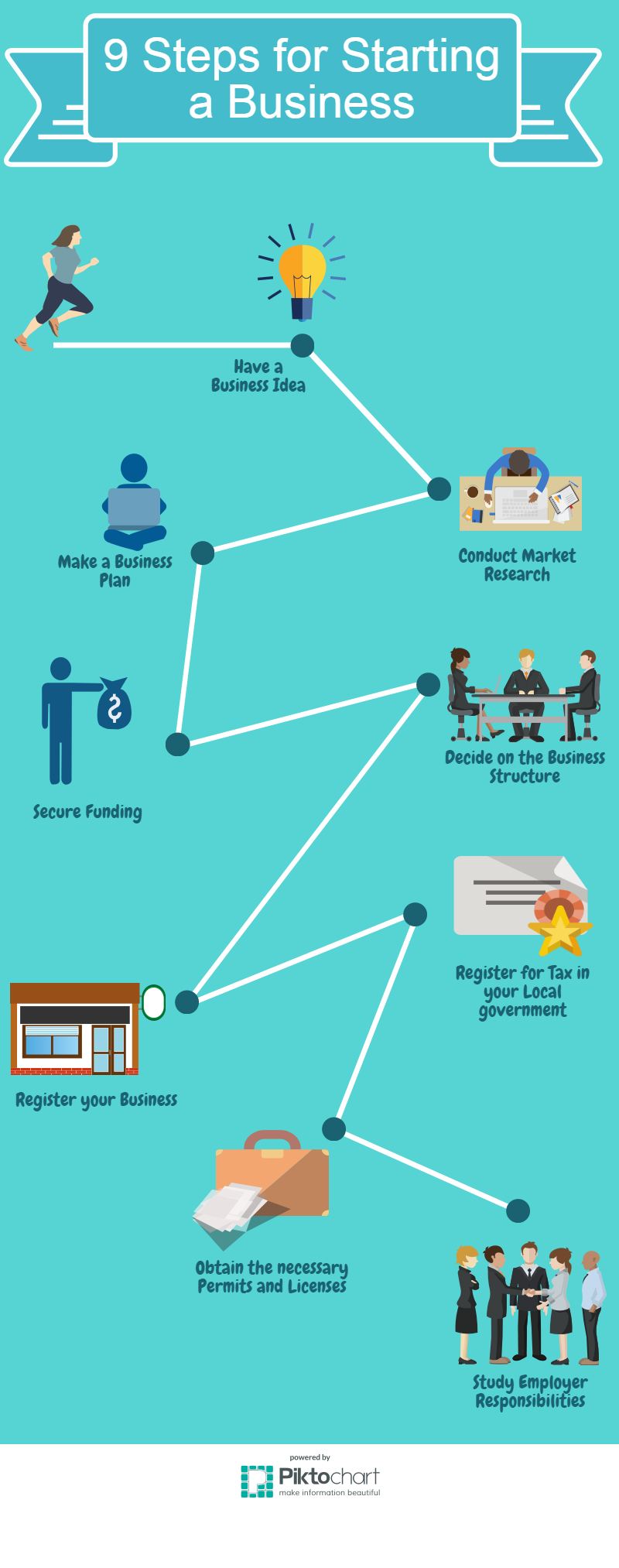What is "freelance" and who is a "freelancer" ?
Briefly, freelance means working, independently, for yourself (being self-employed). Freelancer isn't committed to any employer long-term so he doesn't work on a regular salary basis for one employer. Instead freelancer is hired by companies only to do particular assigments. 💲
Advantages of freelance job:
- You can choose the clients you work with
- Control of workload, choosing how much work you have and which projects are meaningful
- Flexibility, controlling the time you spend working
- Ability to work alone, for yourself, independently
- Freelance job opens up the ability work on a variety of projects and topics
Disadvantages of freelance job:
- Self-employment taxes
- Finding and funding your own insurance, almost no benefits
- Difficulty of finding clients and steady work
- Huge responsibility, taking care of everything (getting clients, managing your clients, billing/collecting, and paying taxes) by yourself
- Cash flow issues, while collecting payment from client you may face some difficulties
- Isolation as you will work alone most of the time, without co-workers or any team
What are the key skills required of a freelancer?
By becoming the freelancer you also become the boss of your own business at the same time. It means that you will have to manage and decide about many things by yourself which isn't an easy job at all. To do that properly and to become a successful freelancer you will have to show some set of skills:
1. Technical skills - known also as "hard" skills. All the skills you need to successfuly finish the assessments from clients. Depending on what is your profession, this set of skills will look a little bit different for everyone, but here are some exaples of what technical skills are about:
- Knowledge about programs, software needed
- Programming languages
- Databases management
- Networking basics
- Testing and reporting skills
- Data structures and algorithms
- Text editors
- Basic knowledge of law (copyrights, etc.)
- Prototyping
2. Behavioural skills - also called "soft" skills. Those are your interpersonal and communications skills. They will help you get the assessments, comunicate with clients and manage your relationships better. Here are some examples:
- problem-solving
- communication
- stress management
- time management
- sales and negotiation skills
- patience
- ethic and culture
- critical thinking
- creativity
- responsibility
- paying attention to details
- being confident and open for people
3. Other skills - all the other skills which aren't required but would make some of the assessments easier for you or could even expand potential clients circle. Examples are:
- languages
- additional certificates, diplomas, licenses and professions
- your hobbies
- history knowledge
- culture knowledge
The importance of reputation and professionalism with clients as a freelancer
As there is no company or employer to hide behind for a freelancer, you always have to give 100% while working for a client. You are only as good as your last job so reputation and professionalism are very important. Being a freelancer is a demanding job so don't underestimate the importance of getting well with your clients and finishing all assessments as best as you can. Good reputation will allow you to gain more clients which equals more money. The fact that you are working for yourself doesn't allow you to stop being professional, it's an opposite of it. As your own boss and your own business representative you always have to stay professional, even during conflicts. If you will treat your clients with respect and act professional, you will be recommended by them to other companies/employers. If your reputation will be low then your freelance job will get very difficult or even impossible to continue. 💥
How to promote yourself as a freelancer?
Cretaing and enhancing your online presence is definitelly the way to go for everyone dreaming of freelance job. You have to show people what is your profession, what you can offer them and what are you good at. 💪
There are few steps which you can't miss while promoting yourself as a freelancer:
- Create an online portfolio - this is the first thing every potential client will look for while considering you for their assignment. You can have your own website or host the portfolio site related to your industry. That way potential clients can see your work, read about it and take your freelancer career for real. Some tips of how to built successful freelance portfolio! 📝
- Be visible wherever potential clients might be - it means being active on forums related to your industry. Your audience may not contact you directly as a result of this visibility but when you pitch them, they’ll recognize your name which will result in more trust towards you. Find out how to boost your visibility here! 👀
- Use your social media - Your services will determine which social media platforms you need to be on. If you’re not sure where you should be,
find few people in your industry and figure out which platforms they use. The most popular ones fitting every industry are: LinkedIn, Facebook and Twitter. Use your social media to promote your work and your services. Find out how to grow you freelance business with your social media here! 🌐
- Be an expert in a niche - even if choosing a niche
or two to specialize in feels limiting, do it anyway as this “limitation” can make your
marketing much easier. You’ll be speaking to a specific audience, know how to solve specific problems and stand out from other freelancers who don't have that knowledge. 🙇
- Get your reviews - collect the reviews about your current or past work from your old/current clients so new potential ones can gain more trust for you. Social media are the easies places to get reviews and testimonials from clients. However, remember to make sure that you have client’s permission before using their words. Here is why the reviews, especially social media ones are so important! 💬
- Ask for refferals - ask your last clients if they know anyone else who might need your services. Showing and telling clients that it was a pleasure to work with them and that you would love to work with someone similar or someone they know is always a smart move. It will help your freelance business grow by establishing relationships and gaining new clients. Remember that you can (and should) also ask your friends, family and collegues for refferals to make your business going. Here are few more reasons why refferals are so important for a freelancer! 📣
- Pitch your services - consistently pitching is one of the most effective ways to grow your freelance business. It means sending messages/emails or calling potential clients to get a job. As a freelancer you need to remember that most of the times work won't come to you, you will have to reach for it. Here you will find out all about pitchinh and how to successfully do it! 📫 How to promote yourself as a freelancer?
Freelance vs Full-time employee developer?
Needless to say that freelance job has a lot of advantages, but is it really better than just working for some company full-time? The differences are quite big and it's important to know them before making a decision about which to choose. 📊
Freedom of Choice:
- Freelancer has a freedom to choose clients he wants to work with and jobs to accept. He also has
Establishing your own business
If you don't want to work for any company or emloyer but freelancing isn't something you want to do in life then this option is perfect for you. Setting up your own business will slowly let you build a list of stable clients, hire people to work for you and make your services more and more popular. However a decision to establish your own business always equals with possible risk of failing. To set up a business of your own you first have to invest in it and whole idea, know the law and be aware of competition.👑
You can register your own business as:
- Sole trader - It is the simplest business structure you could adopt and it is very suitable for any one-person businesses. You’re personally responsible for your business’s debts and also have some accounting responsibilities.
- Limited companies - If you form a limited company, its finances are separate from your personal finances, but there are more reposrting and management responsibilities.
- Partnership - A partnership is the simplest way for 2 or more people to run a business together. You share responsibility for your business’s debts and you also have accounting responsibilities.
Setting up your own business is a long, time consuming path. Having a good idea which you are passionate about enough to make a real life business out of it is a first step for success. Don't forget analyzing the market and your competition before you'll take further steps. Remember to get some knowledge in the field of law, create a business plan, get all needed licenses and register your business with a suitable structure type. Learn all about taxes, investments and account work you will need to take care of. Don't make any quick, drastic decisions as every bad one may cost you a fortune. Always think twice, look for advice and analyze all options before making any decision about our business! Here you will find out about steps required to establish a business. 📈
An ultimate question: which one off all of them is the best option?
Who is on the winning position? Full-time employee, freelancer or entepreneur? Well unfortunatelly this question stays unanswered as there is simply no answer. Some of us would say that owning your own business is the winning option, but many would disagree as it's also too much of a risk and stress to handle. Some would say that freelancers live a dream life cause of their flexible working times and independence, but again for some it is too financialy unsecure option to consider. Another person would say that full-time job is a way to go because of benefit, guaranteed salary and stability. However for some people it's just too boring and they hate the idea of working under someone (boss, managers). 🙎
If you would ask me which one would I choose then wel...all of them. How and why you may ask. Well let me explain:
- Start as a full-time employee - it's a great opportunity to gain some experience, get to know people in your industry, make some relationships with clients and co-workers and save up some money. After few years of working in a company you will gain enough experience and useful relationships to feel confident enough to start working for yourself by your own rules - as a freelancer.
- Trying out freelancing - with some savings from previous job you can slowly dive in freelance world and pitching for assessments. You can use relationships from old work to find new clients or even try to reach the previous ones to establish some jobs agreements with them. It will be an easier approach to start freelancing as you will already know a lot about the industry, know some people in it, own a nice portfolio materials and feel prepared, like you aren't just starting from 0.
- Set up your own business - while working as a freelancer you will decide if this is what you want to do or not. You can always go back for working full-time or keep on freelancing. However many freelancers eventually decide to start their own business, as they have some clients lift built up and a lot assessments constantly popping up. As a successful freelancer you can analyze your situation, ask your clients if they would stick with your services if you will go for it, invest some saved up money and try to start something up. There is no rush with it and you don't have to do it on your own as you can always start a partnership with someone you trust and get along well with.
That's all for this week's post, thank you for reading! 😊












Comments
Post a Comment